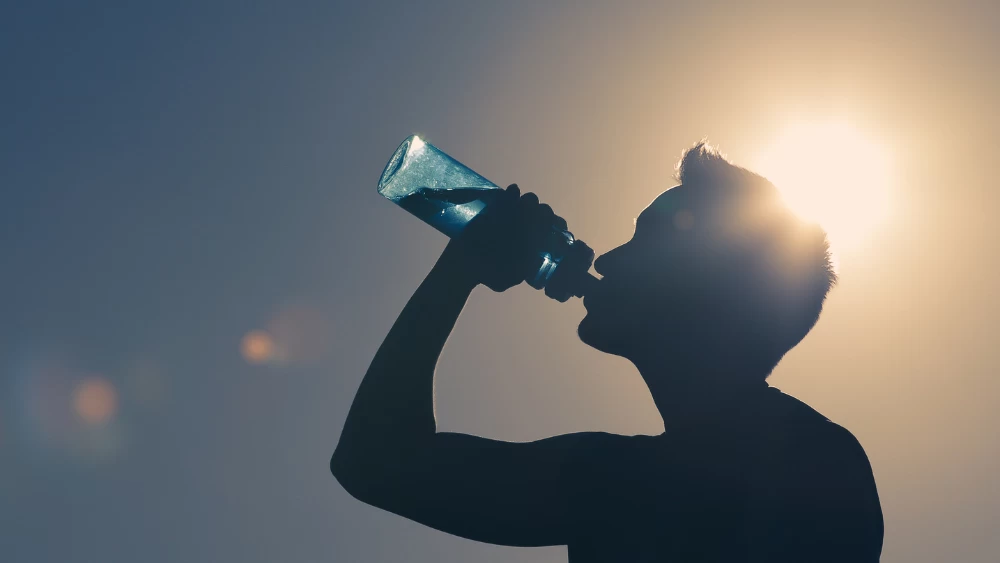
- 6th January 2023
Introduction to understand the need of water for good health
In what amounts should one consume water daily? This seems like a simple question, yet there is no clear solution. The recommendations based on these studies have varied over time. However, the amount of water you need to drink each day is based on a variety of factors, such as your age, gender, level of activity, and geographic location. There is no one-size-fits-all solution. However, you can better estimate your daily water intake if you have a better understanding of your body's fluid needs.
Why is water so good for you, medically speaking?
About half to three quarters of your body mass is water, making it the primary chemical component of your body. Keeping hydrated is essential to life. Water is essential for the normal functioning of all of your body's cells, tissues, and organs. Examples of essential functions of water in human body:
- Eliminates waste products by urination, sweat, and defecation
- Maintains a steady body temperature
- Cushions and lubricates the joints.
- It helps prevent damage to delicate tissues.
Dehydration is a state in which there isn't enough water in the body to sustain a person's regular bodily functions. You can feel exhausted and drained of energy even from slight dehydration.
Can you tell me how much water you'll need?
Water is constantly being lost through respiration, sweat, urination, and defecation. Drinking water and eating meals high in water content helps restore the body's water supply, which is essential for optimal functioning. How much water does a normal, healthy adult in a mild environment require? It has been established by the National Academies of Sciences, Engineering, and Medicine in the United States that the following amounts of liquids should be consumed daily:
- For men, that equates to about 15.5 cups (3.7 liters) of water each day.
- Women should drink about 11.5 cups (2.7 liters) of fluids daily.
You can get the fluids you need from water, other beverages, and meals, all of which are recommended. Food typically accounts for about 20% of a person's daily fluid intake, with beverages making up the balance.
Doesn't the recommendation of 8 glasses of water each day count?
It's recommended that you consume eight glasses of water daily. That's simple to keep in mind, and it's not too lofty of an objective. Most healthy people don't need to worry about dehydration if they drink water and other fluids on demand. Some folks don't need the whole eight glasses each day. While some may require more, this is not always the case. Several factors may require you to adjust your daily fluid consumption:
- Exercise: Drink plenty of water before, during, and after physical activity that causes you to sweat. Keep hydrated before, during, and after exercise.
- Environment: Sweating, especially in hot and humid weather, necessitates drinking more fluids. Also common at high altitudes is dehydration.
- Conditions of health as a whole. If you have a fever, are throwing up, or have diarrhea, you need to replace the fluids your body loses. Increase your fluid intake, whether that be water or an oral rehydration solution prescribed by your doctor. Bladder infections and stones in the urinary tract are two other illnesses that may benefit from a more liquid-rich diet.
- Conditions related to pregnancy and nursing. Additional fluid intake may be required to maintain proper hydration during pregnancy and breastfeeding.
Do you need to drink solely water to keep yourself hydrated?
No. You can get the fluids you need from several sources besides just water. Also contributing significantly is the food you consume. Watermelon and spinach are only two of numerous fruits and vegetables that are nearly water-weightless. Milk, fruit juice, and herbal teas are all examples of liquids that include a high water content. Caffeinated beverages, such as coffee and soft drinks, can still help you meet your water needs for the day. But limit your intake of sugary beverages. Sugary drinks like regular soda, energy drinks, sports drinks, and other sweet beverages may deliver more calories than necessary.
How can I tell whether I'm getting enough to drink?
If you meet these criteria, then your fluid consumption is generally fine:
- Rarely do you sense the onset of thirst.
- Urine is clear or pale yellow in color for you.
- Find out how much water you should be drinking daily from your doctor or a dietician. Make water your beverage of choice to avoid dehydration and supply your body with the fluids it needs. A glass of water is a smart move because:
- With each meal and between meals
- Before, during and after exercise
- If you feel thirsty
Should I worry about drinking too much water?
Drinking too much water is rarely a concern for healthy, well-nourished adults. Athletes occasionally may drink too much water in an attempt to prevent dehydration after long or severe exercise. The kidneys become overwhelmed and fail to excrete excess water when excessive amounts are consumed. Your blood loses some of its salt content as a result. The medical term for this condition is hyponatremia, and it can be fatal if left untreated.














